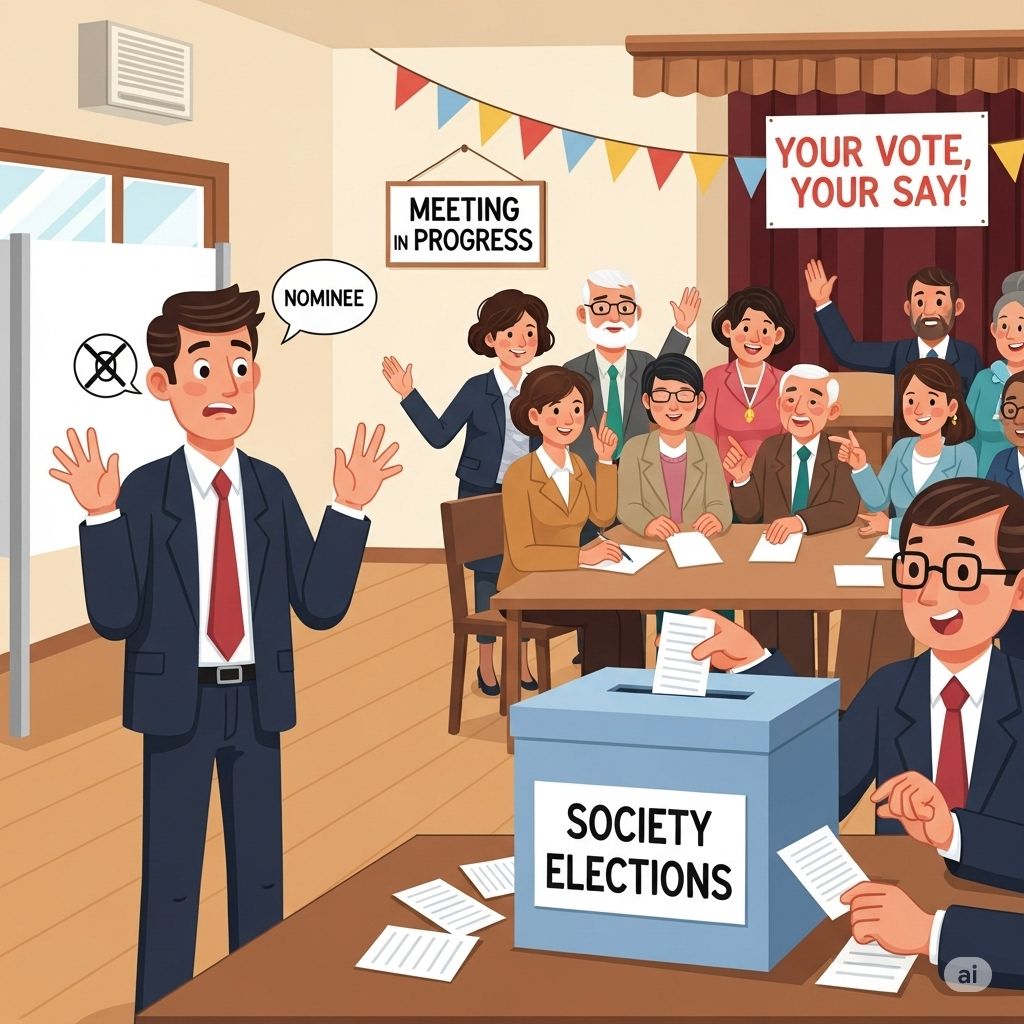When it comes to cooperative housing societies in Maharashtra, many flat owners believe that their nominated person can participate and vote in general meetings on their behalf. However, the reality under the Maharashtra Cooperative Societies (MCS) Act is different. The voting rights of a nominee are subject to specific legal provisions and are very limited.
Role of a Nominee in a Housing Society
A nominee is essentially a trustee appointed by a flat owner to receive rights in the event of the owner’s death. The nominee acts as the point of contact for the society during such situations.
-
During the lifetime of the member: The nominee has no ownership rights, no role in decision-making, and cannot exercise the member’s voting rights.
-
Upon the death of the member: The nominee’s role is to safeguard the property until the rightful legal heir(s) claim it, as per succession laws.
Voting Rights of a Nominee – The Legal Position
Under the MCS Act, every member has one vote, and it must be exercised personally. Proxy voting is not permitted, which means:
-
A nominee cannot vote on behalf of a living member, even with written authorisation.
-
The right to vote lies solely with the registered member until their death or membership transfer.
Impact of the MCS Amendments Act, 2019
The MCS Amendments Act, 2019 introduced the concept of provisional membership for nominees after the member’s death. Key points:
-
The nominee is admitted as a provisional member until the membership is formally transferred to the legal heir(s).
-
During this provisional membership period, the nominee can attend and vote in general meetings.
-
To become a permanent member, the nominee must submit documents such as an heirship certificate, succession certificate, probate, or family arrangement.
Relevant sections: 154B-1, 154B-4, 154B-12, 154B-13 of the MCS Act.
-
While the Member is Alive
-
Mr. A owns a flat and nominates his son. Even if Mr. A is abroad, his son cannot vote in general meetings.
-
-
After the Member’s Death
-
Mr. A passes away. His son (nominee) becomes a provisional member and can vote in the meeting until legal transfer of ownership is completed.
-
Conclusion
A nominee’s voting rights depend entirely on whether the original member is alive and whether formal membership transfer has occurred. While alive, the flat owner alone can vote. After their death, the nominee, as a provisional member, can temporarily exercise voting rights until legal formalities are completed.







